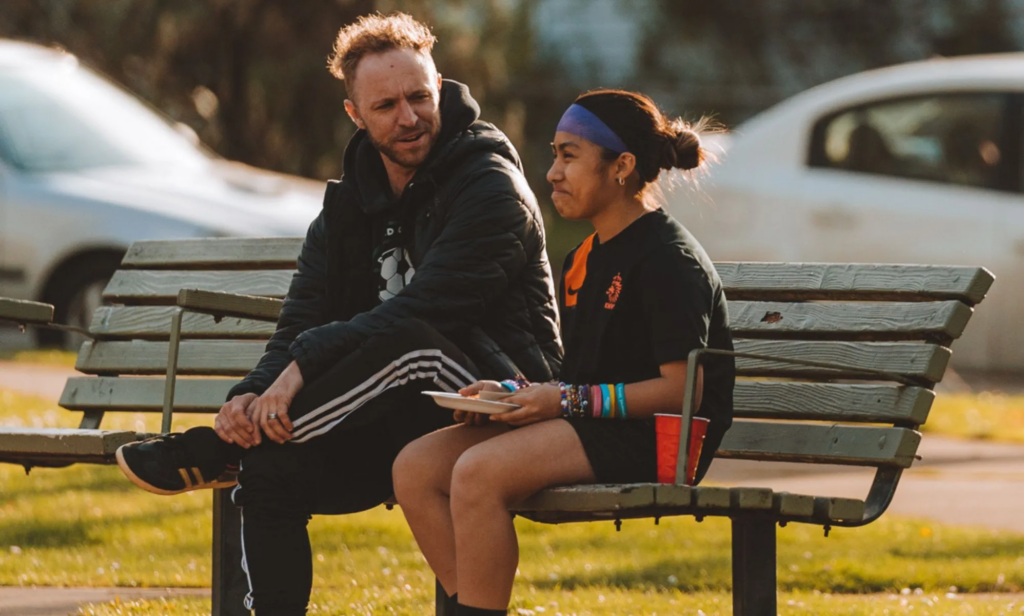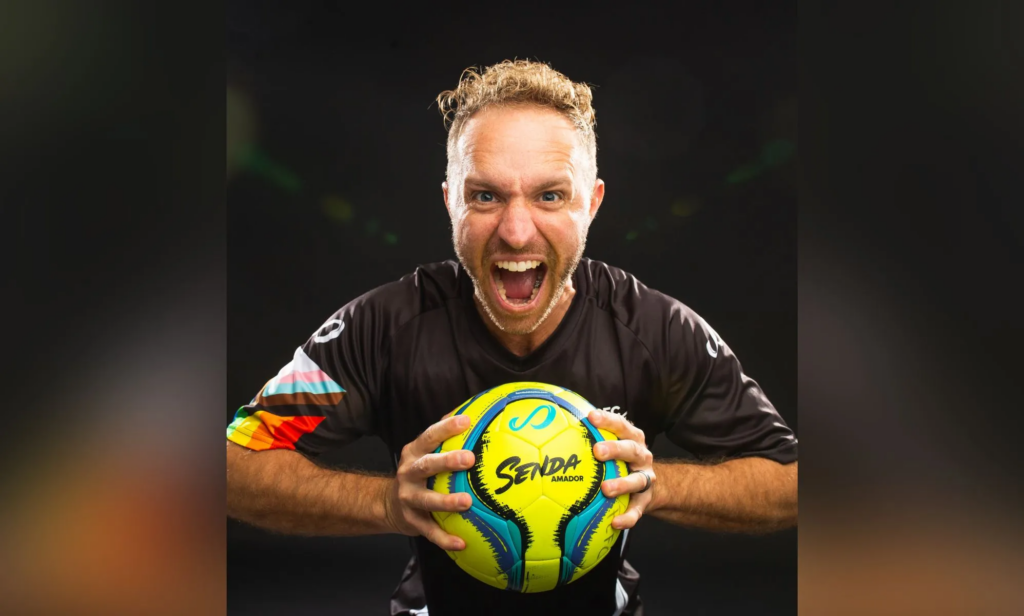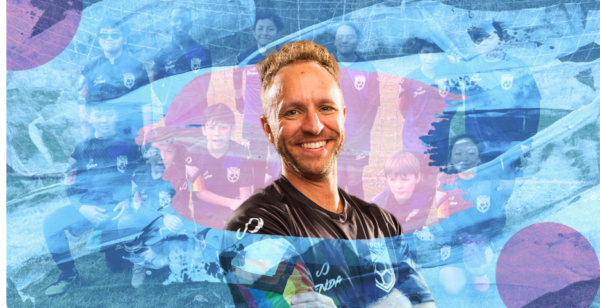At the age of six, the athlete and coach Kaig Lightner began playing football. While he has “zero recall” of playing at that age, his mother has informed him that he “dribbled all the way down the field and scored in the incorrect goal” as one of his best moments.
Lightner subsequently played softball, basketball, and volleyball before taking up rowing while attending the University of Washington.
“I immediately turned into an athlete,” he tells PinkNews. “Among all the identities I feel I possess, being an athlete is my primary identity. It is the thing that I always fall back on and return to.”

A transgender football coach describes how athletics may serve as “the light at the end of the tunnel.”
Safe environments for trans athletes like Lightner are becoming increasingly scarce. In the United States, hardline politicians are drafting a slew of measures to restrict transgender individuals from playing on the appropriate team.
In addition, a number of international athletic organizations have essentially prohibited transgender professional athletes from competing in women’s sports. This includes the International Swimming Federation and World Athletics.
Via the Portland Community Football Club (PCFC), which he founded in 2013 to remove obstacles to competitive sports training and opportunity for players and coaches from varied backgrounds, Lightner is combating this issue. Also, the environment is friendly and accepting for LGBTQ+ players, parents, and coaches.
Lightner is convinced that he “would not be here” if not for sports. Growing up, the field was a place of “pleasure and acceptance” for him, despite the fact that he occasionally struggled with not “fitting into the traditional image of femininity” due to his trans identity.
“It was as if I was unable to really enter a realm of ease and let go of how I didn’t fit in,” he adds. “But, at least via sports I was able to work over my dissatisfaction.”
“And one of the things that is just killing me right now, that is just breaking my heart about everything that is going on in the United States with the anti-trans athlete bills, is that I wouldn’t be here if it weren’t for sports, despite the pain that sometimes accompanied it.

You’re why I’m here. I would not head this organization. I’m private.
“That was my salvation. That unquestionably saved my life. My family was my other lifeline. Thankfully, my family has always been supportive and has showed me so much unconditional care and love…
“But, sports was where I found my identity. It is mind-boggling to me that something could be taken away from children based only on their inherent nature as human beings.
Trans inclusion in athletics has been a controversial topic in the United States.
In the past three years, 19 states, the most of which are controlled by Republican legislators, have passed laws prohibiting or limiting the sports participation of transgender students, most often in K-12 institutions but occasionally in colleges as well.
Yet, transgender inclusion in athletics is not a United States-only problem. Global sports governing organizations, notably World Rugby, Fina, and rugby organisations in Scotland, Wales, Ireland, and England, have increasingly restricted trans and non-binary people’s ability to compete at the highest levels of sport.
Thursday, World Athletics became the most recent international sports organization to enforce a trans ban (23 March).
The governing body for a number of track and field sports issued new restrictions that prevent trans women who have reached puberty prior to transitioning from competing in women’s events. The new rules take effect on March 31, Trans Day of Visibility.
World Athletics said that the restriction was necessary because “fairness and the integrity of the female competition must take precedence over inclusivity.”
However, LGBTQ+ advocates, supporters, celebrities, professional athletes, and politicians have pointed out that such restrictions replicate the detrimental gender policing that has historically plagued women’s sports.
And by limiting trans participation in elite sports, international sports organizations send the inaccurate and discriminatory message that transgender people do not belong in sports.

